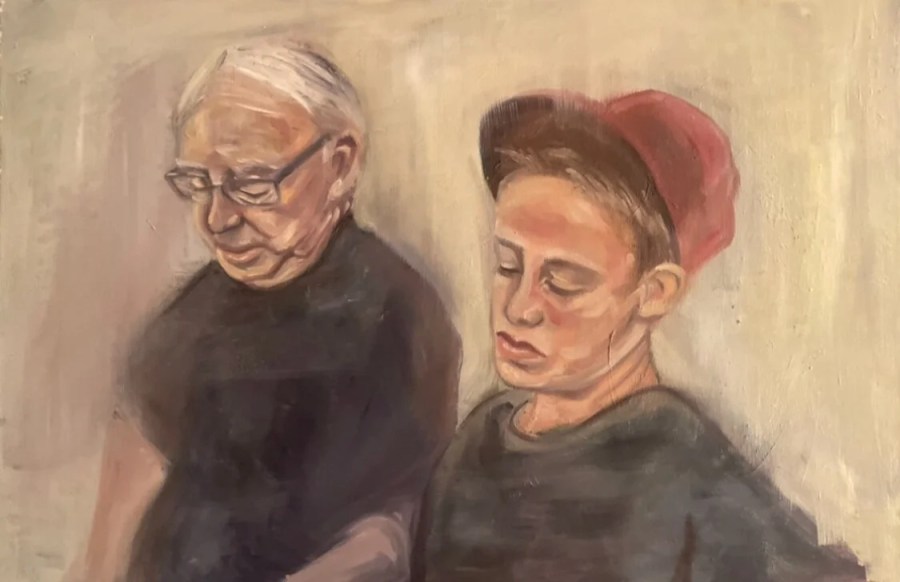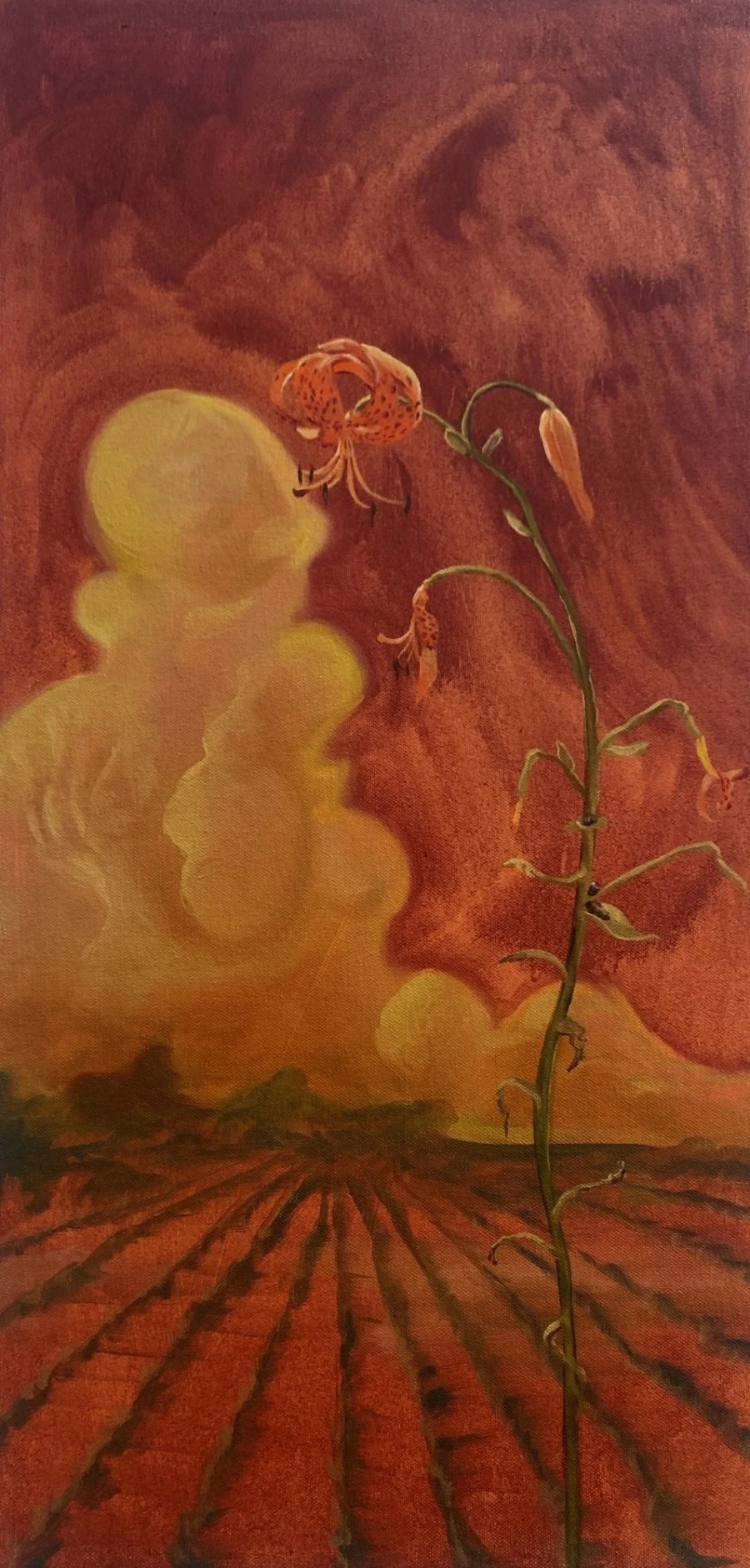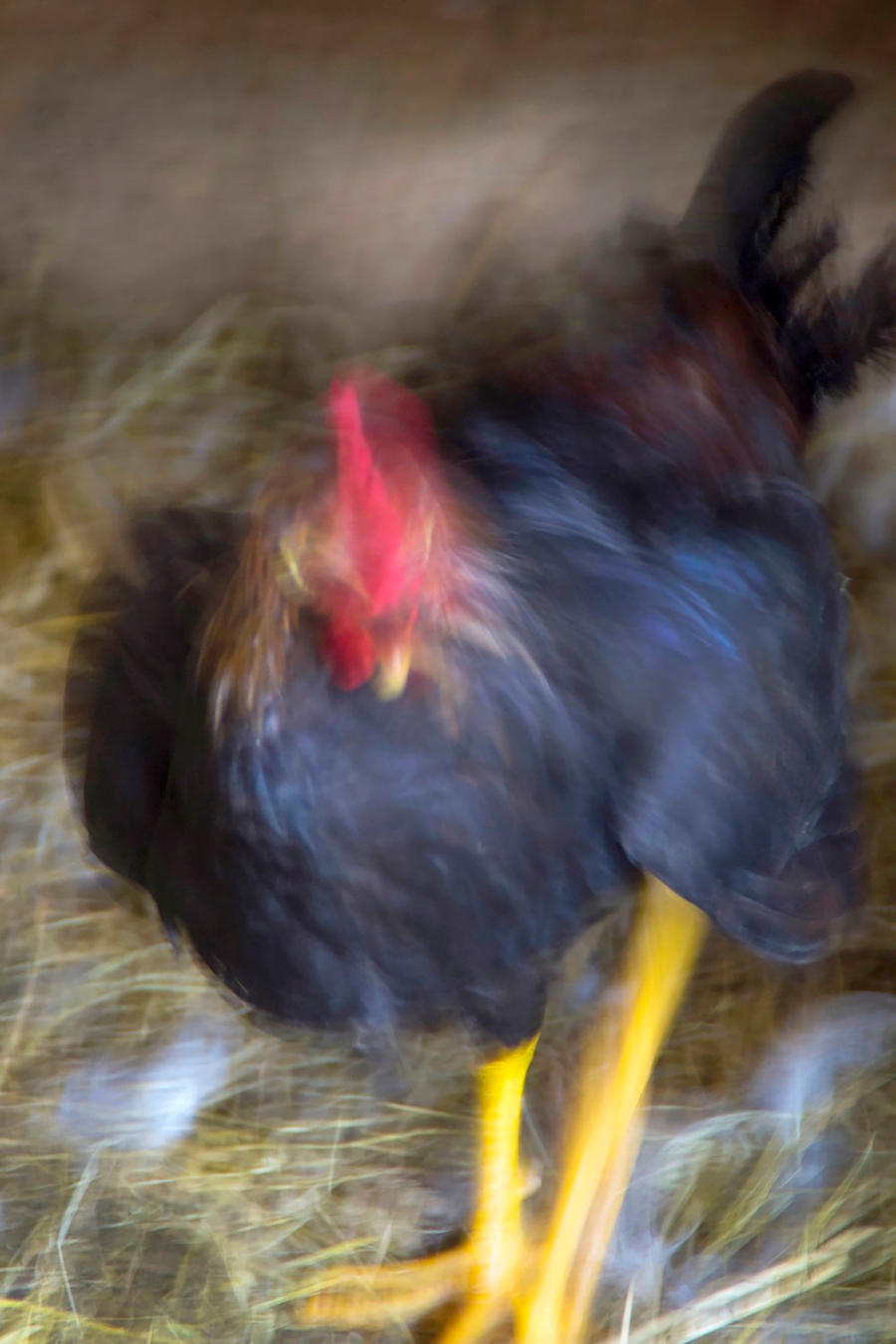By Mark Neely
I could do without these turkey buzzards
hunched like crash victims
on the water tower’s whitewashed railing
red skulls
poking from the ratty blankets
of their wings. A county over
two taxidermied buzzards hang
from another tower. Their sickly talons
sway in the breeze—
the only thing we’ve found that really works
says the mayor in the local paper.
September. Heat rises in shimmery waves
from the asphalt. The black holes of their eyes
trail me as I sweat through a sluggish run.
They don’t stir, don’t so much as turn their heads.
A few frayed feathers shiver against the sky.
Remember newspapers? They were useful
when we lived with the delusion
we might need each other—under city
bridges the destitute spread
them over heating grates.
I’m guessing water towers will last longer
and vultures, who only eat the dead. I read somewhere
their stomach acids allow them to ingest
meat so rotten it would kill another animal. Like poets
I said, though no one else was there.
I’m always reading things, storing them away
for later. I’m always
chasing down my youth. So far he’s unimpressed.
He prances along in sleek shoes, pays me about as much
mind as groups of jostling teenagers pay me on the street.
I fear these old birds
have a thing or two to say, like grandmothers
warbling behind screen doors. One drops
flaps twice, rides a thermal
traces three wobbly ovals
over the train tracks where the road crumbles
into gravel. I remember the lines
from “At the Fishhouses,” about the seal who visits
evening after evening
a playful opening
in the vast, inhospitable sea.
He shrugs off Bishop’s silly hymns, vanishes,
reemerges elsewhere, making it clear
he’s in his element. Here
streets run down toward the river, houses shrink
their porches falling in
until they finally collapse. My buzzard veers
over the dog groomer’s, the green-shingled nursing home
the Bahá’í temple—no more than a rundown ranch house—
then swoops high above the dentist’s billboard, a fearsome maw
of gleaming teeth. Earlier, Son House came on the radio:
woke up this morning feeling so sick and bad
thinking ‘bout the good times I once had had
I could see him banging his foot
on the juke joint floor, then withering
in a seedy hospital.
Well, we got that over with,
my mother-in-law likes to say
after the parade winds down
or the last guest pulls away.
You like to run? she asked me once, baffled
by any exercise that isn’t useful. I like to have run
I answered, stealing a line from a novelist I heard once, talking
about his labors, the endless straining for the right word
as opposed to the almost right one, which Mark Twain said
was the difference between the lightning bug
and the lighting. A few cars flash in the distance
as I cross over onto the greenway, a gray path
winding along the river like Ariadne’s thread—
she helped a man who didn’t love her
find his way. Sound familiar?
Sometimes I catch myself
wishing the day would end. Or try to leap
whole years, even as they spool away.
We used to call this human nature.
Bishop thought of knowledge
as a kind of suffering
a dark expanse
we can only skirt the edges of…
Inside the tower’s globe, an ocean
waits for another emergency—
metallic, unthinkably heavy
drawn impossibly into the sky.
One morning I watched three buzzards
huddled by the road, tearing at the pink entrails of a possum
knocked into the ditch as it scuttled through the night.
Curious, bathed in blood
incapable of mercy, they bowed like monks
over the body.
As they tore at the animal, one fixed me
in her stare.
Look here, she seemed to say.
I wanted to conflate carrion
and carry, to imagine an airy chariot
ascending from the corpse.
A delivery truck rattled around the corner
and startled the birds into flight, where they joined the host
swirling above.
Carnal, of course
is the word I was looking for—
Read More






















